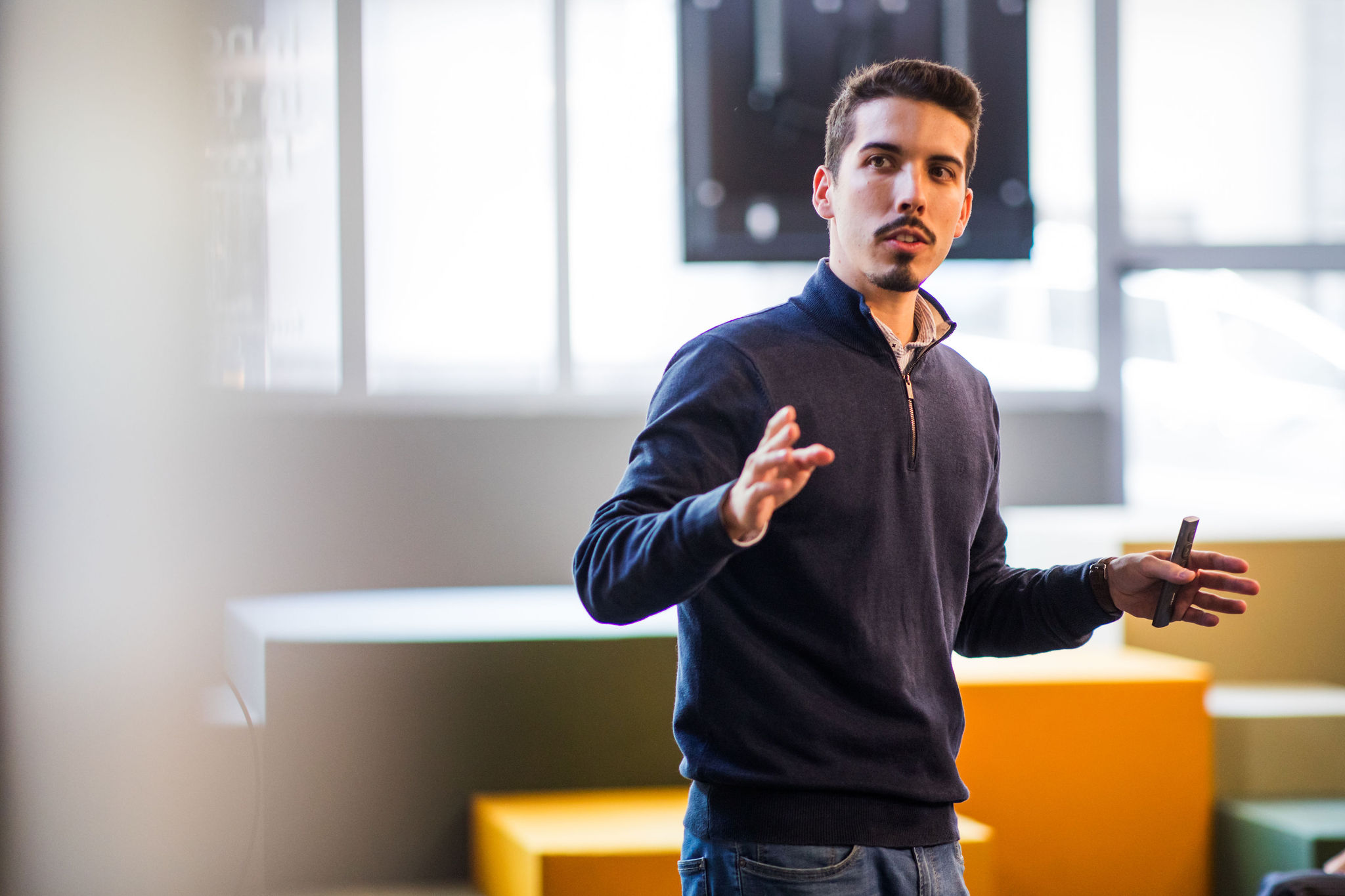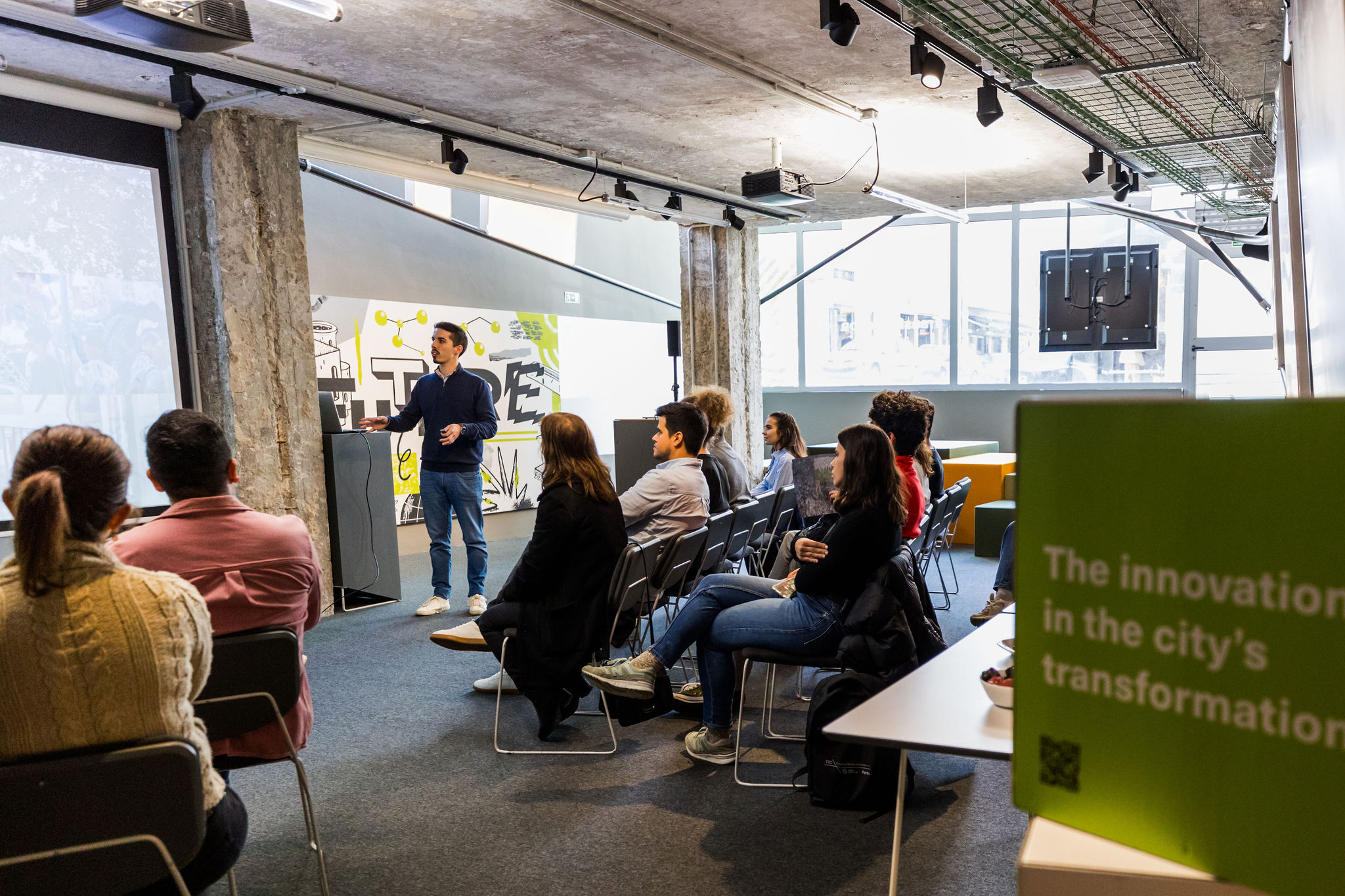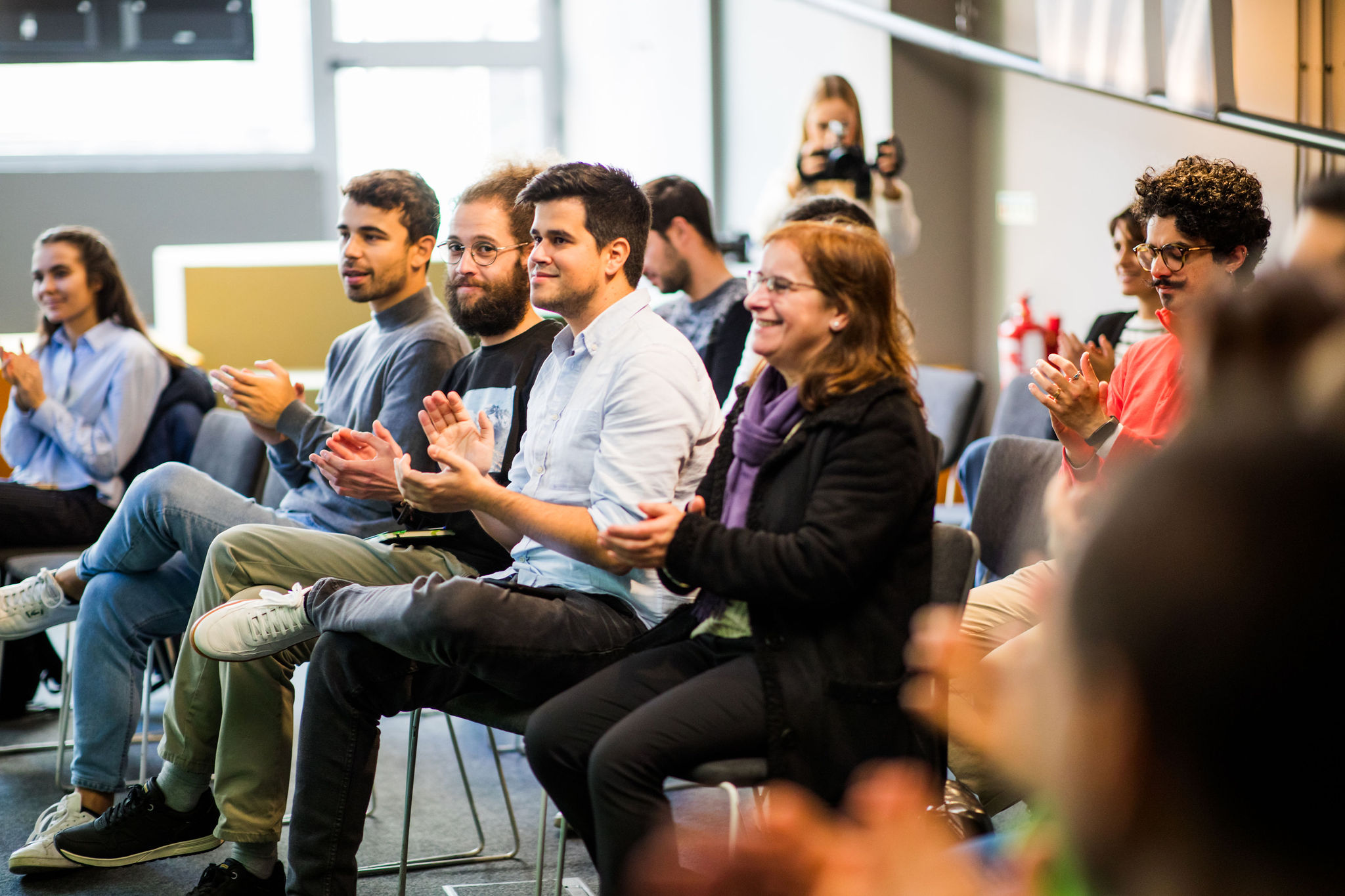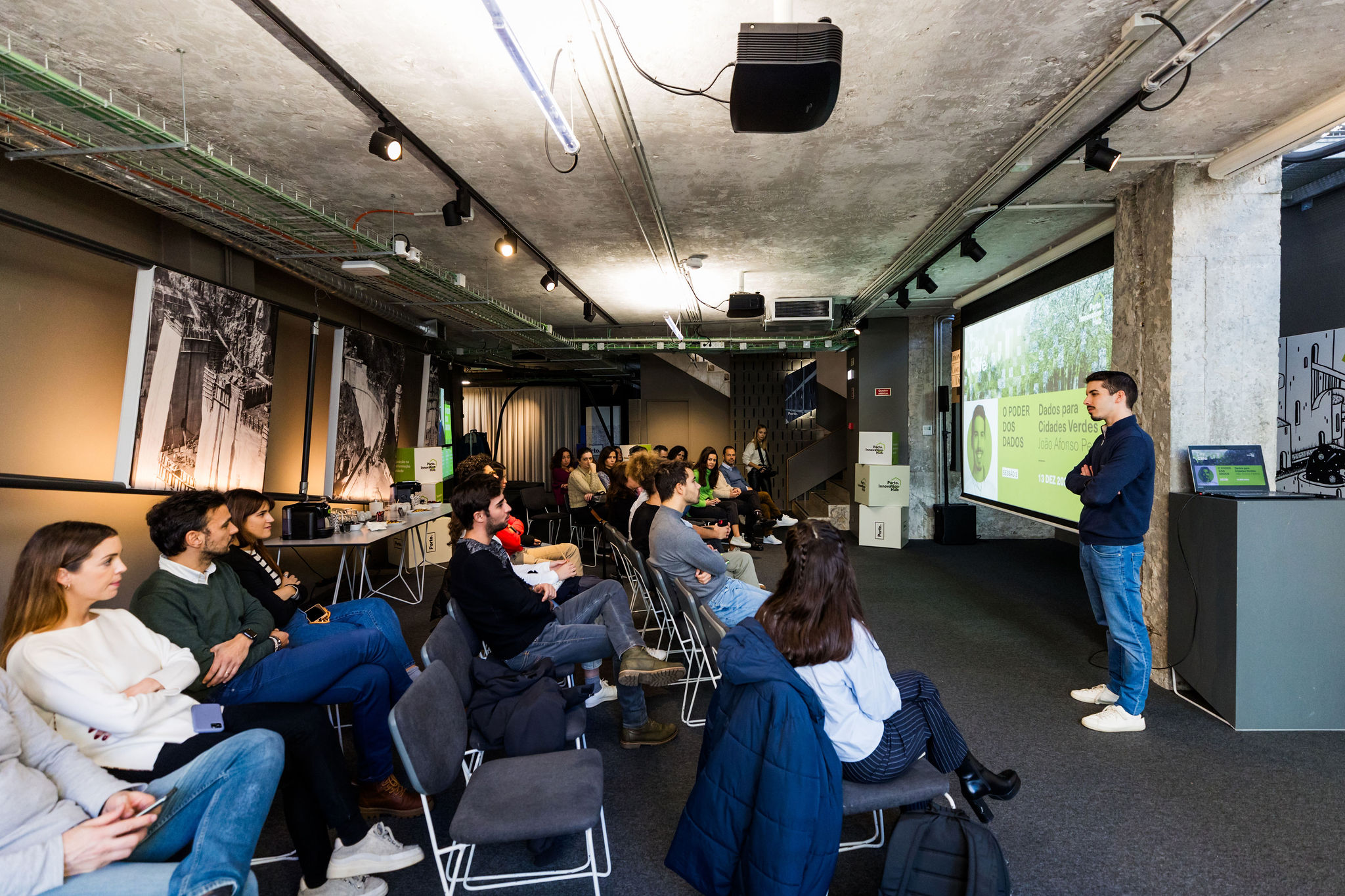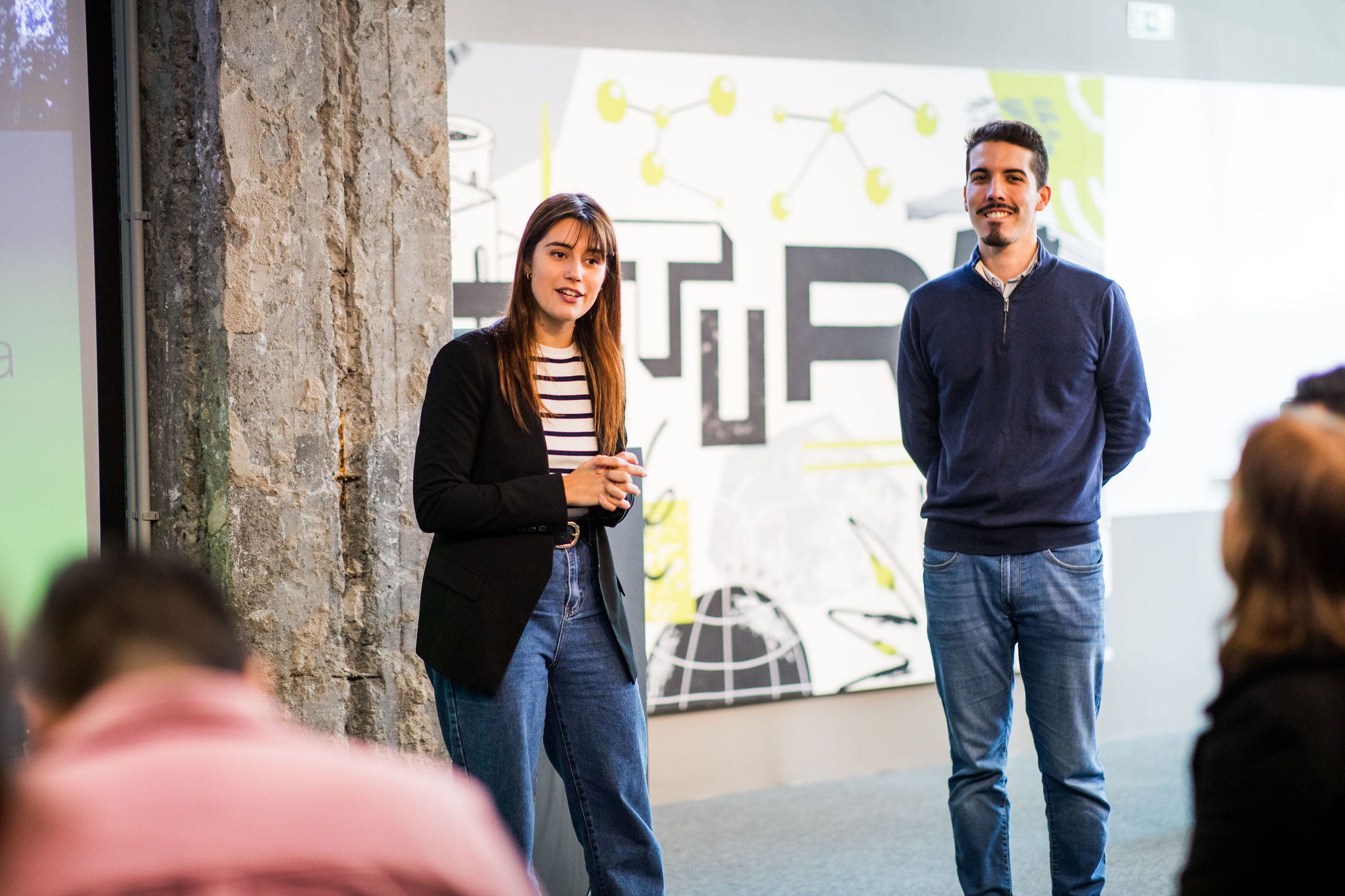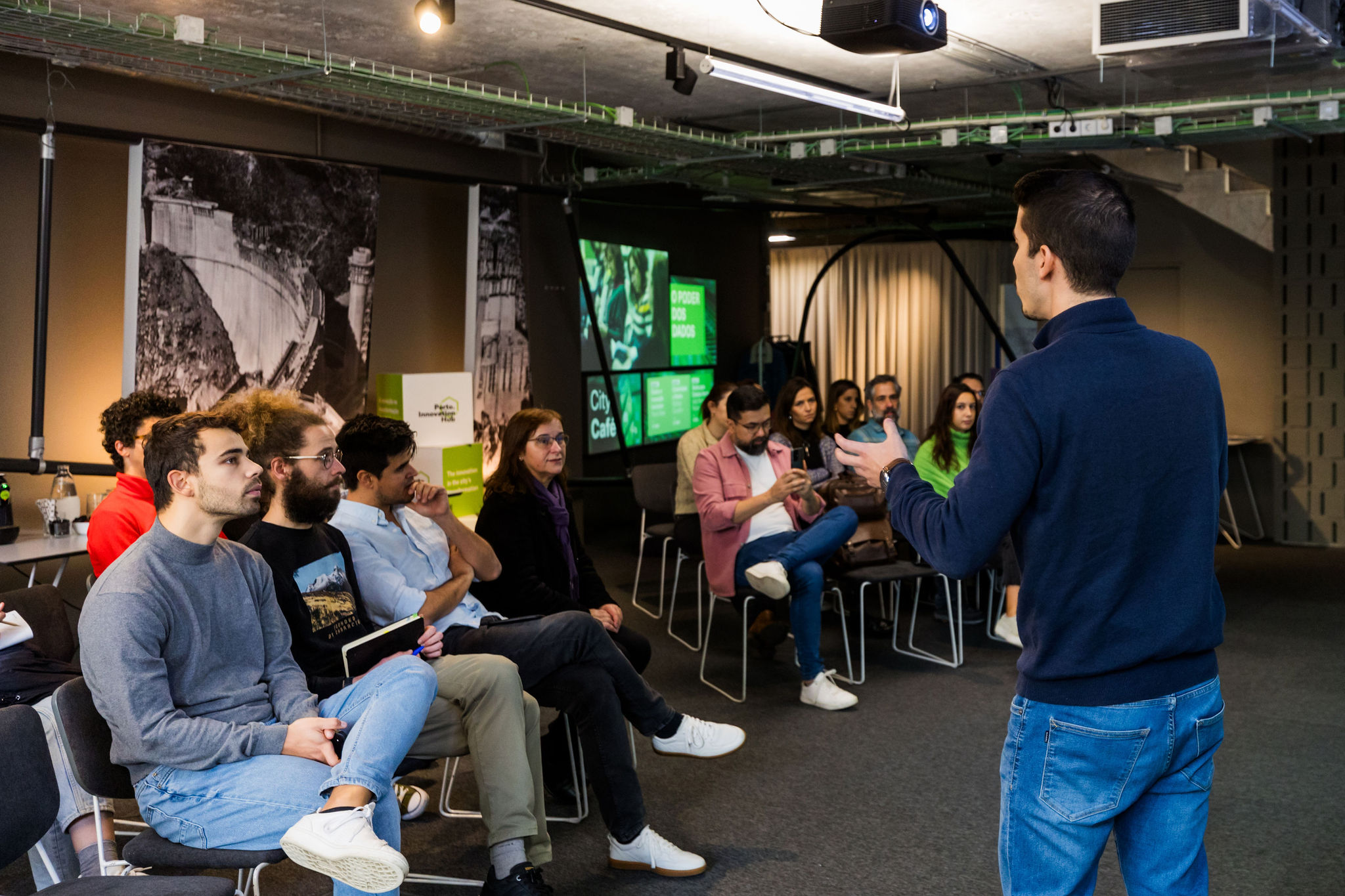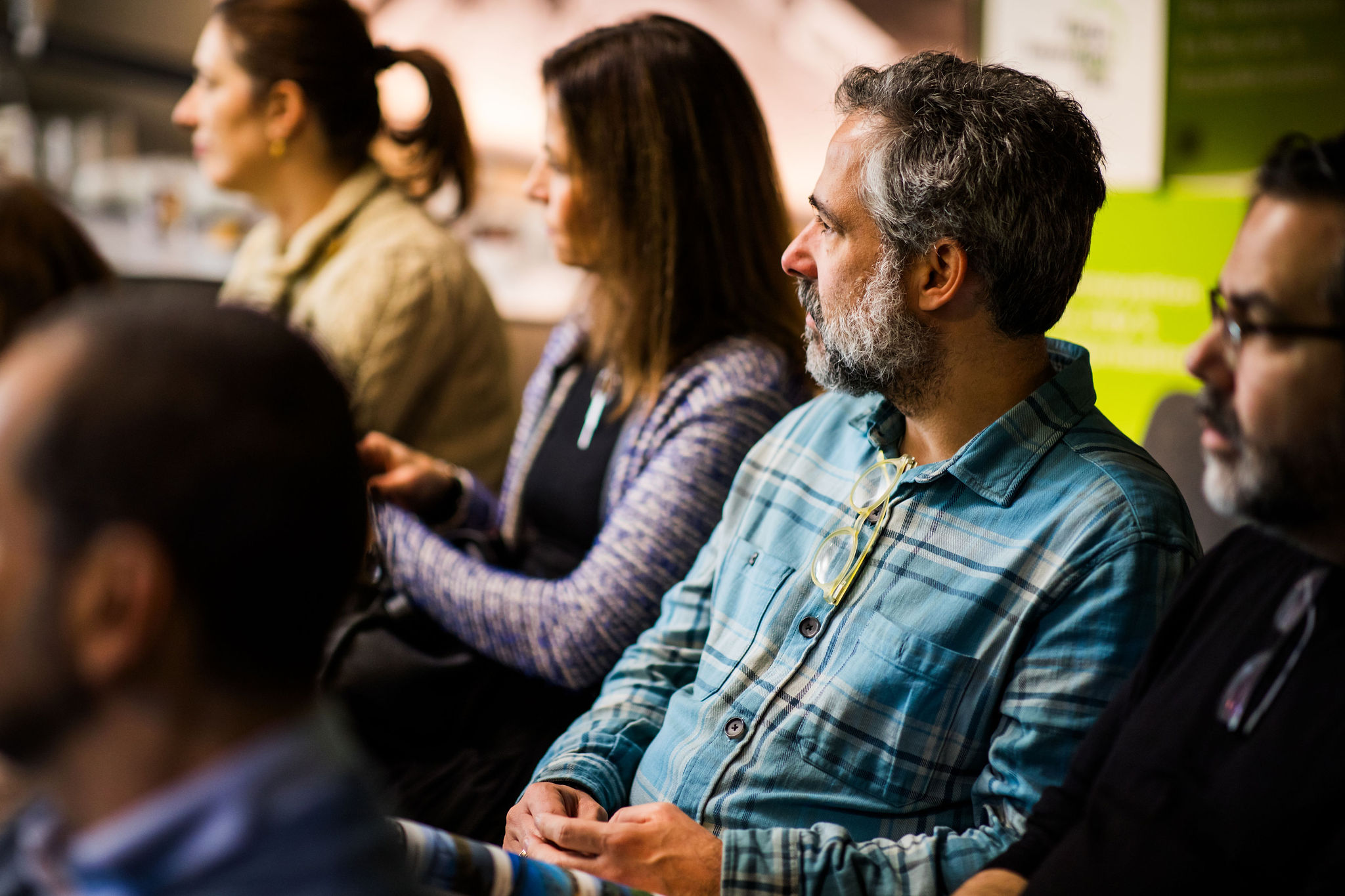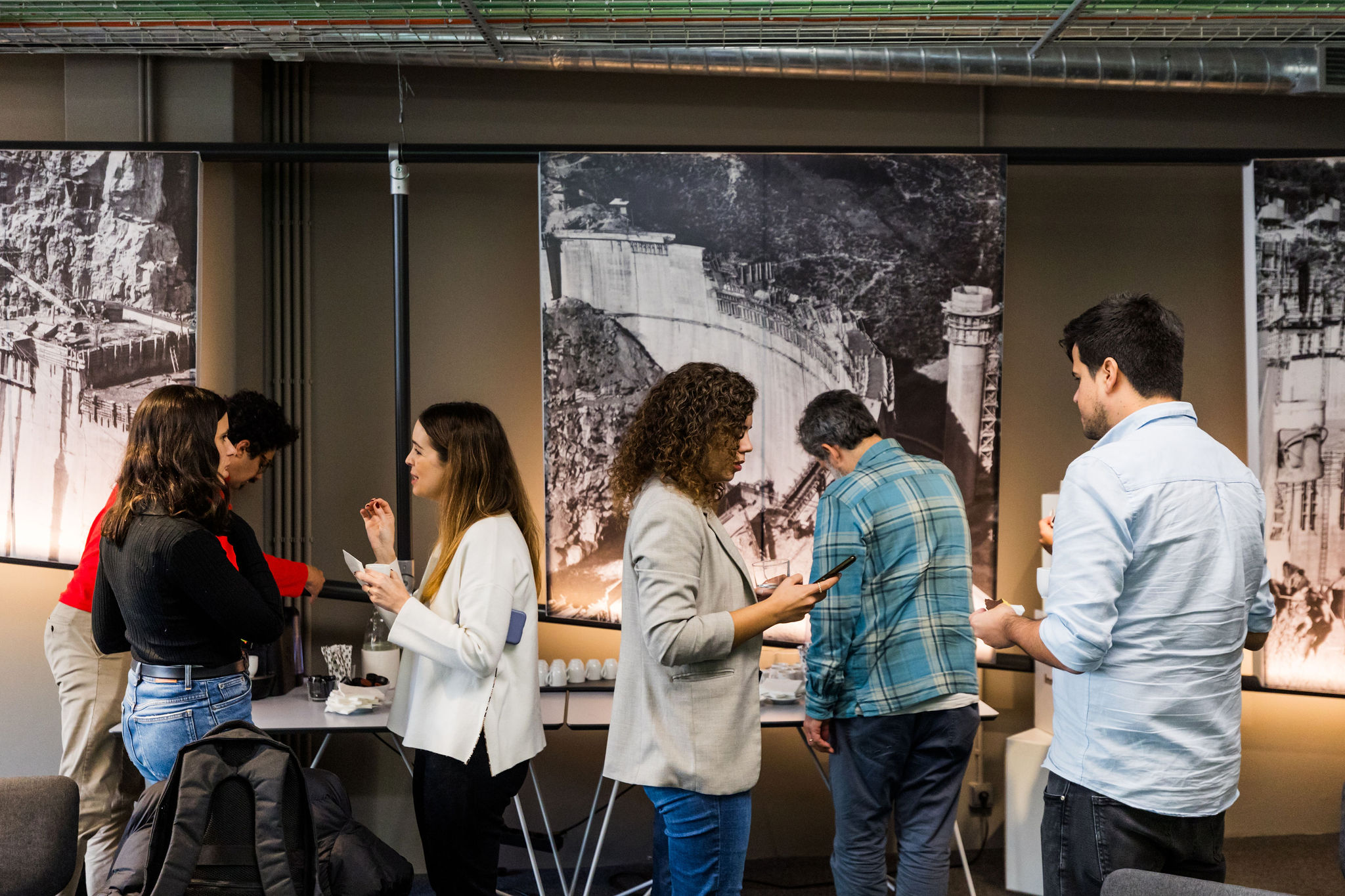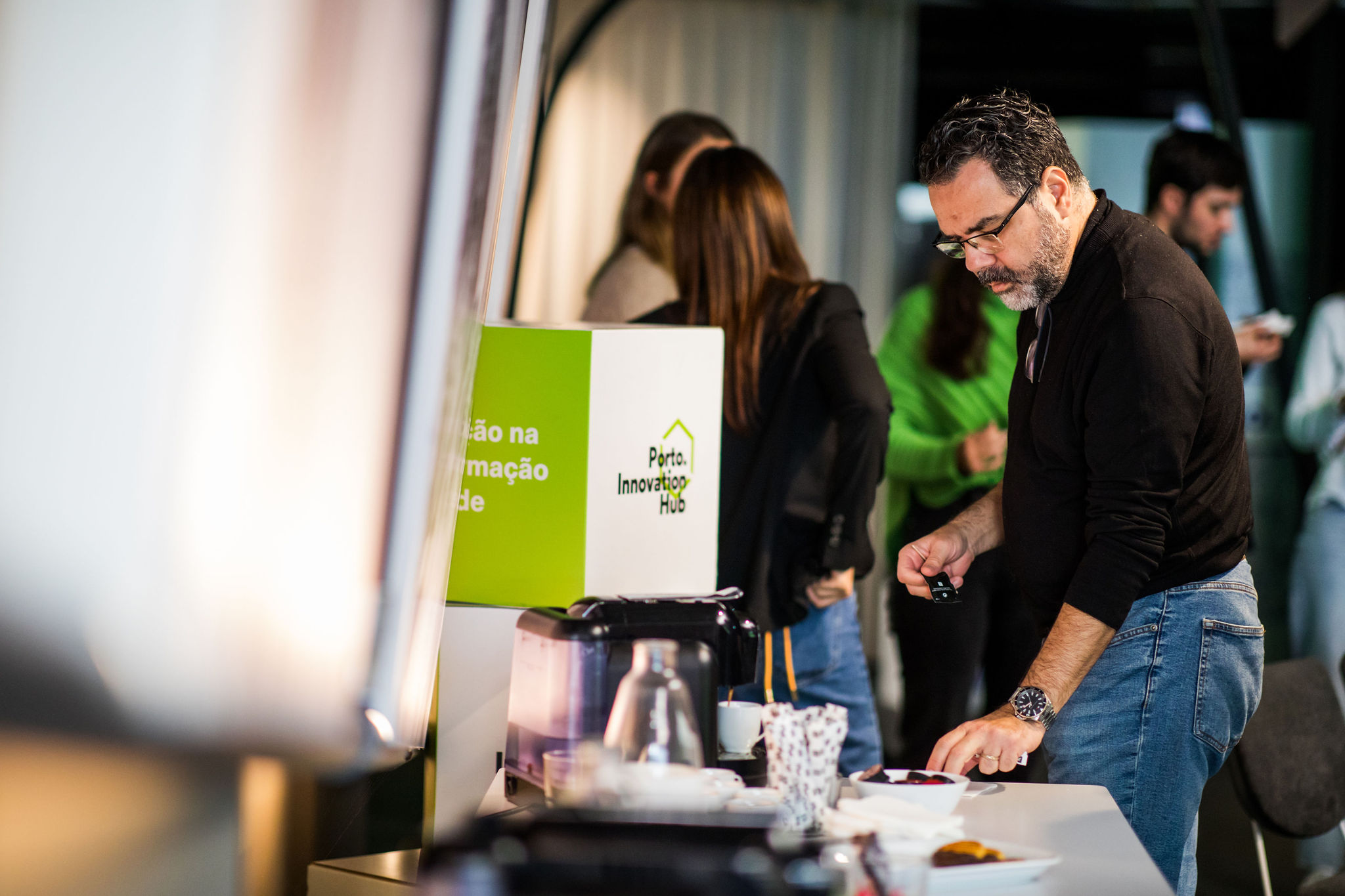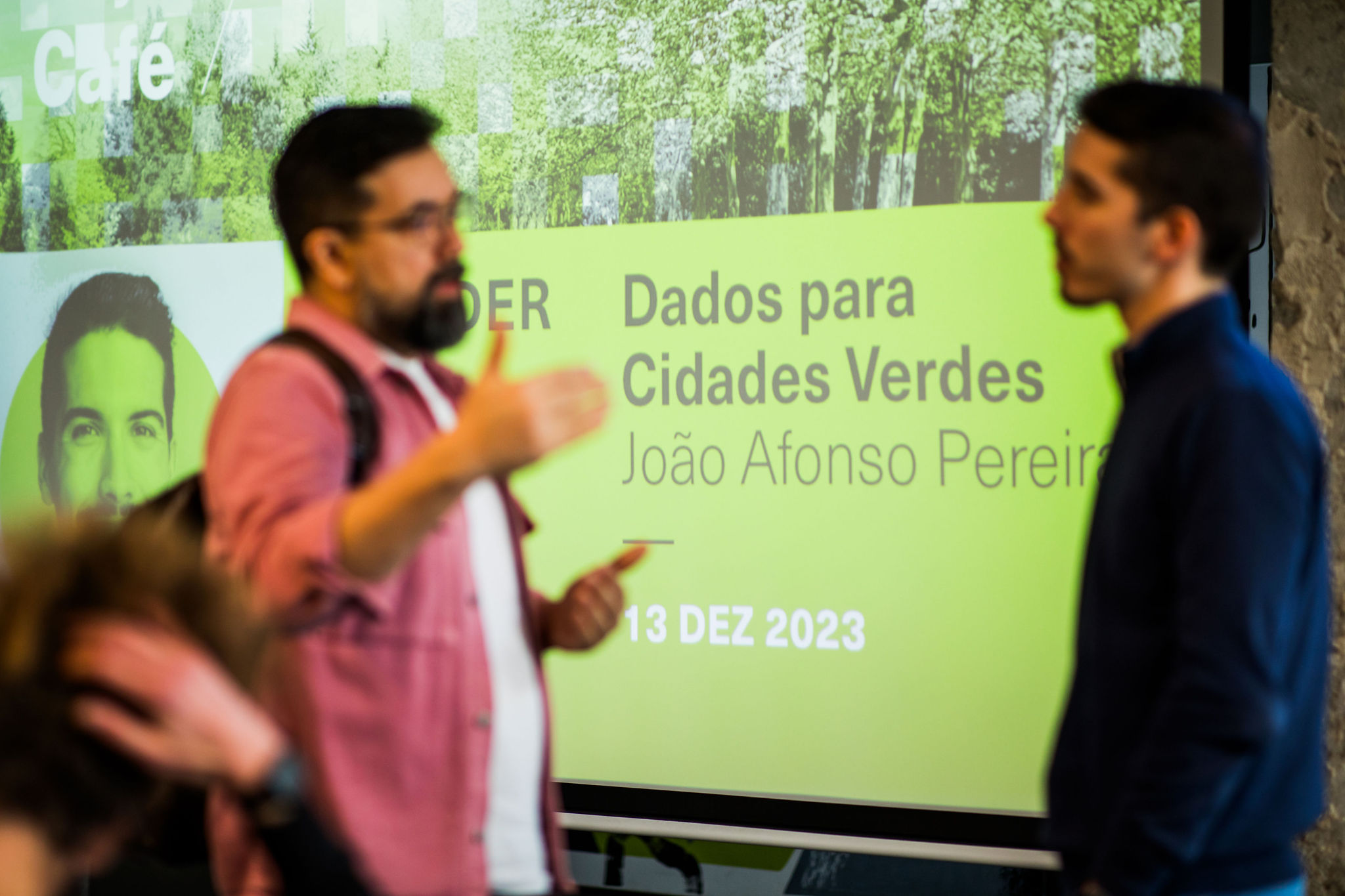The role of data in sustainable development
On 13 December, the City Café welcomed João Afonso Pereira as a speaker, a bioengineer who graduated from FEUP and went through some professional experiences until he became enchanted with the “world of data” and its relevance in the context of sustainability. This path became more meaningful as he began to take part in hackathons – World Data League (an initiative that has already received the support of Porto City Council, as part of the Open Call, which is developed by Porto Digital/Porto Innovation Hub), Eurekathon, Holin Leveraging Data, among others. He currently works at Enlitia, an Artificial Intelligence start-up dedicated to renewable energies.
João Afonso Pereira began the session by questioning the audience about the mode of transport chosen by each person in the audience to get around that same day, in order to assess the level of sustainability of those present. He asked who travelled by car, who travelled by public transport and who travelled by soft modes (walking, cycling, scooting). He noted that the audience was actually quite sustainable, and he was pleased about that.
What is sustainability?
– The United Nations Sustainable Development Goals, adopted in 2015 to achieve peace and prosperity by 2030, which are divided into three pillars: Environment, Society and Economy.
– And how can data be used to achieve sustainable development?
– Data analysis is useful for helping cities to achieve these goals, particularly with regard to emissions management, resource management, mobility, energy, etc.
To illustrate the kind of support that data can provide in this mission, the speaker listed some of the projects in which he has participated.
1) Optimisation of micro-mobility parks (location of electric scooters/bicycles) in the city of Porto, at the request of Porto Digital (which also coordinates the activity of the Porto Innovation Hub) which, through the identification of relevant factors for high use, the creation of an index of probability of use by zone and an optimisation algorithm that maximises use by the population, sought to identify the optimum distribution of micro-mobility parks that takes into account the resident population and the connection with the public transport network.
2) Optimisation of waste management in Austin (USA) to promote waste reduction, identifying critical areas in need of promotion/education and proposing collection improvements.
3) Project to identify and optimise “dark corridors” for bats in Bristol (UK) in an attempt to counteract the negative impacts of artificial light, promoting a balanced ecosystem between animals and the resident population.
There was also time for the guest to share suggestions of what is within everyone’s reach, whether more or less related to the area of data, in order to make their contribution to sustainable development. Thus, the speaker challenged the audience to:
– make the effort to answer questionnaires that collect data associated with sustainability;
– implement data collection and analysis initiatives in their organisation;
– individually try to record data to understand their own behaviour in order to make decisions based on facts (for example, recording water, electricity or telephone costs so that one day they might consider switching to a supplier that better meets their real needs).
Towards the end of the session, the audience had the chance to ask some questions, in a moment of proximity between guest and audience. João Afonso Pereira then took the opportunity to reiterate his call for everyone, in their sphere of action and influence, to promote the collection and analysis of data. Data, in fact, “is not a solution in itself, but it is a valuable aid in arriving at the best and most efficient solutions”.
